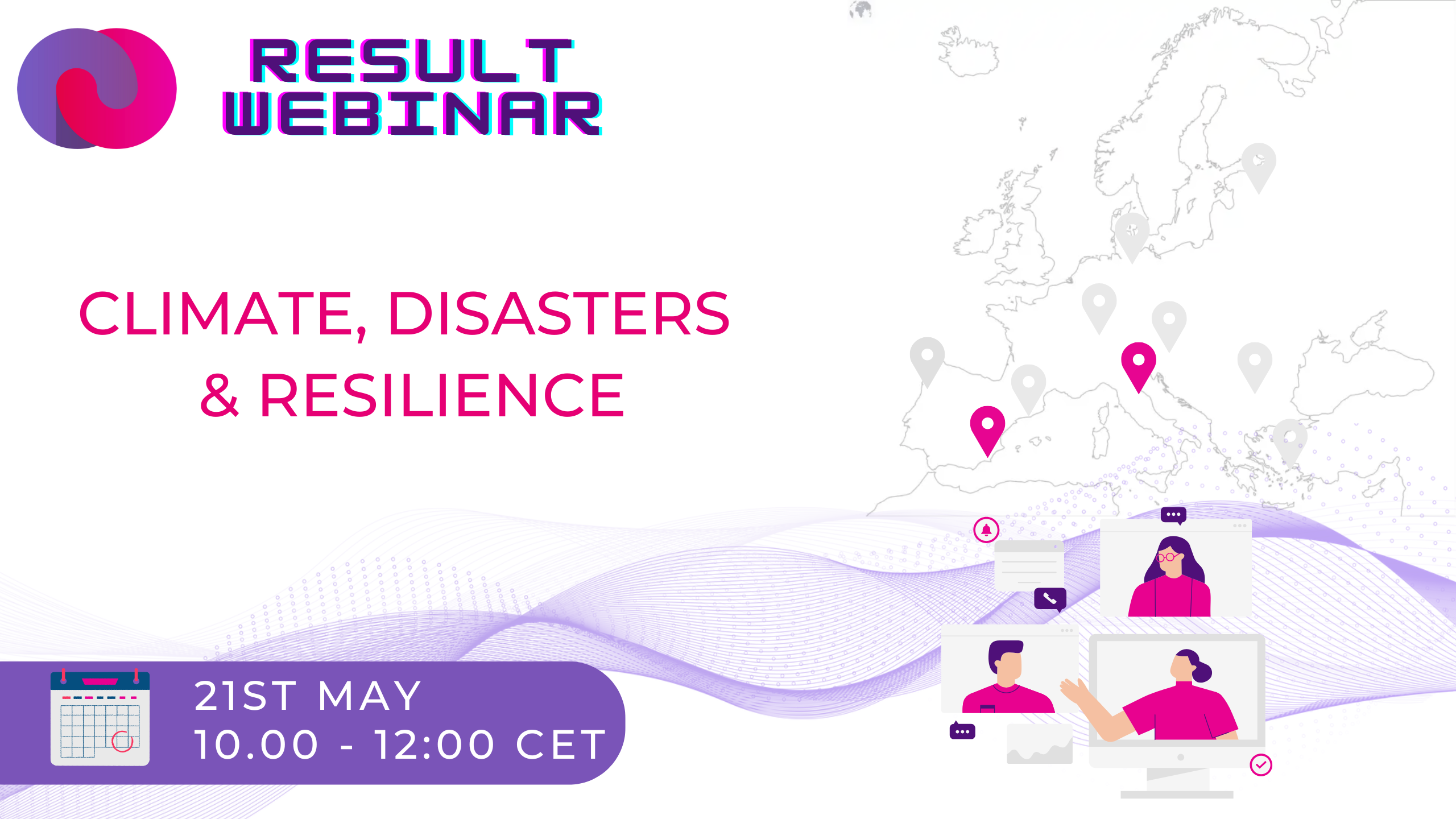Results Webinar II: Climate, disasters and resilience (Murcia & Times Labs)

The FutuResilience project funded ten labs that bring together multiple stakeholders to co-create evidence-informed policies aimed at strengthening societal resilience against various crises. Emphasizing knowledge valorisation for policy uptake, the labs served as experimental spaces for policy testing, using a diverse range of approaches and tools with a strong focus on future-oriented thinking.
Over approximately 15 months, each lab began by defining concrete challenges, mapping key stakeholders, and exploring how these challenges might evolve over time by developing different scenarios. With a focus on enhancing societal preparedness, the labs’ stakeholders collaborated to design evidence-based policy actions capable of addressing the initial challenges across multiple plausible future scenarios.
This webinar series marks a key milestone and an opportunity to showcase the process and insights gained from the different labs, highlighting their results, methodologies, outputs, and key lessons learnt. In particular, this webinar will focus on two labs, MURCIA & TIMES, which approach different aspects of a more common phenomenon: strengthening local communities preparedness to disaster and the definition of efficient and effective urban policy solutions to face climate change emergencies.

The TIMES Lab looked to respond to a new strategic need emerging from the largest flood in the region in recent decades which took place in Cesena and near areas – Italy - during the May 2023. The emergency has driven to a mass mobilization of young volunteers spontaneously intervening using informal communication channels. This phenomenon was, at the same time, a great resource and a critical issue to manage for Civil Protection. The Lab applied foresight method to design future scenarios that bring together the social response in emergencies, new governance planning tools and technologies.
The MURCIA Lab aimed to identify strategies to enhance urban resilience to climate change in Murcia, focusing on three key risks: reducing the impacts of urban heat islands, mitigating the effects of heavy rainfall and flooding, and advancing the transition toward a compact, diverse, and proximity-based city model. The method involved creating future scenarios and evaluating 30 evidence-based policies across various domains—data, planning, interventions, emergency management, governance, and evaluation—through collaboration with technical staff, academics, and civil society.
This webinar will also include a showcase of a study commissioned to a group of master students from the University of Groningen that analysed the resiliency profile of Gran Canaria. The study aimed to better understand the local community’s perceptions of climate-related risks, vulnerabilities, and resilience in the island. It highlights the potential of spatial-based tools to characterise territories and identify policy strategies linked to local needs.
Preliminary Agenda
- Welcome and introduction: Matias Barberis, EFIS Centre
- TIMES Lab "Strengthening local community preparedness to disasters": Sofia Burioli, Comune di Cesena & Andrea Fabbri, Fondazione IU Rusconi Ghigi
- MURCIA Lab "Climate change crowdmapping for better urban policy solutions", Bernardo Lopez, Ayuntamiento de Murcia & Fernando Garcia, UPCT
- Resiliency profile of Gran Canaria, Steff van den Berg, University of Groningen
- Moderated Discussion, Fernando Garcia, UPCT
- Q&A Session, Fabiola Onofrio, UNIFE
Join the event: https://events.teams.microsoft.com/event/2ab785c0-226c-473f-83b3-a080fc09adf6@8eaef797-67a0-42ea-8b25-c45c1fb67fcd